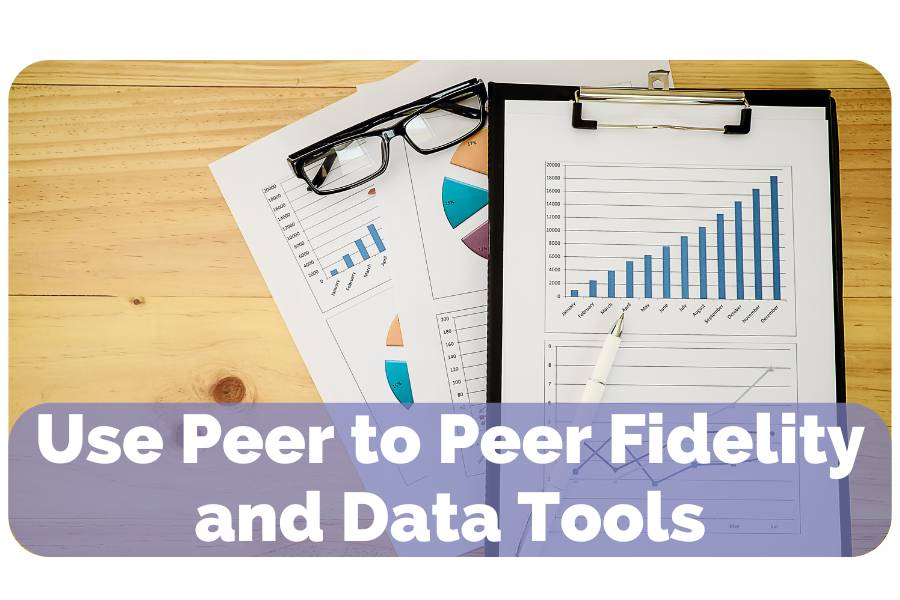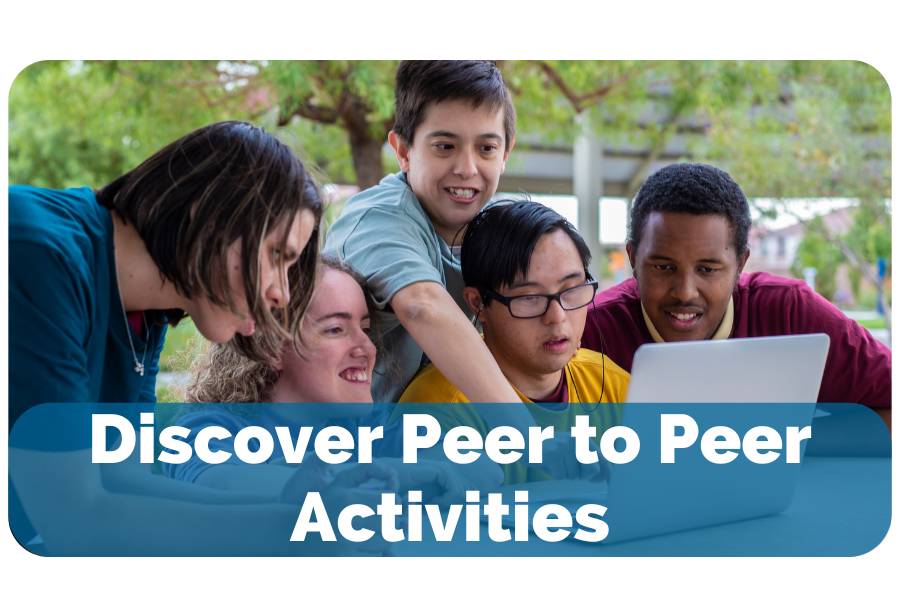What is Peer to Peer?
Peer to Peer is rooted in evidence-based practices, initiated by school staff and embedded within a school community, and intentionally connects students with and without disabilities across the school day to promote belonging for all students. There are no prerequisites for participating in Peer to Peer. Simply put, Peer to Peer is for everyone.
Through Peer to Peer, school staff harness natural opportunities across the school day for intentional connections between students with disabilities and their peers. Peer education gives students knowledge and skills that demystify disabilities and increase understanding and acceptance.
Although each Peer to Peer program is different, the results are the same: improved outcomes for autistic students and a more positive, accepting school culture for all.





Peer to Peer is a Participation Model!
In Peer to Peer, students with and without disabilities come together to engage in shared activities where ALL students learn together. This is a Participation Model. Participation is the foundation for high-quality Peer to Peer programs. The participation model shifts from a helping approach -- where one student is the helper and the other is the recipient of help – to a model where all students actively engage together in natural friendships.
Build your program with the resources you have and expand when opportunities present. But always lay the foundation in the participation model.
All participants in Peer to Peer, regardless of whether or not they have disabilities, benefit. They learn, grow, gain new skills, and develop new friendships.
Learn more about the Participation Model:
Participation vs Helping Model Slides
Peer to Peer and Unified Champion Schools Collaboration

How do you create a culture in your school that promotes friendships and inclusiveness for all students 365 days a year? A collaboration between START’s Peer to Peer and Special Olympics’ Unified Champion Schools (UCS) is a powerful resource that accomplishes all of those goals. While the strategy of the two evidence-based programs varies, the outcomes of the programs are the same.
Peer to Peer and UCS both result in inclusivity, friendships through a participation model, and acceptance for all students in the school community.
Getting Started with Peer to Peer
If you could choose just one evidence-based practice that would have a far-reaching effect on the quality of life of all students, choose Peer to Peer support. It is not just an evidence-based practice, it is a way of being together that promotes belonging, friendship, and unity through a shared experience. No other “thing” is as broadly impactful, having a lifelong impact on students, families, teachers, schools, and communities.
Waiting for the perfect time or the perfect plan will prevent your team from getting your Peer to Peer program started. It is okay to start small, but do start now.
[1689188318].jpg)





[1719417640].jpg)